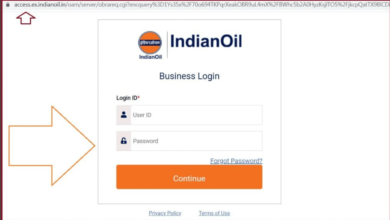Choosing the Right AML/CTF Program: A Comprehensive Guide for Your Business Needs

Are you unsure which Anti-Money Laundering and Counter-Terrorism Financing (AML/CTF) program best suits your business? With various regulatory requirements and program types available, it’s easy to feel overwhelmed. Choosing the appropriate program is crucial for maintaining compliance and effectively managing the risks associated with money laundering and terrorism financing. Understanding the available alternatives can aid you in making an enlightened decision that aligns with your business’s needs.
When selecting an AML/CTF program, it’s essential to recognise that there are three main types: Standard, Joint, and Special. Each addresses the unique needs of different business structures and operations. This page will help you explore these options, offering insights into which might best suit your organisation.
What Is a Standard Program?
It is typically suited for stand-alone reporting entities. It is designed to address the needs of individual companies that operate independently without the complexities of multiple entities or shared resources. The Standard consists of two essential parts: Part A and Part B.
Part A focuses on identifying, managing, and mitigating the threat associated with money laundering and terrorism financing. Part B deals with customer identification and verification processes, ensuring they know who they are dealing with.
When Is a Joint Program Appropriate?
It is designed for entities within a Designated Business Group (DBG) structure. If your company is part of a group of related entities that share resources, information, or management, a Joint agreement may be the best choice. This allows multiple entities within the group to comply with AML/CTF requirements collectively rather than each entity having its own separate program. Like the Standard, the Joint agreement also includes Part A and Part B, but it is tailored to the individual needs and risks of the entire group.
Understanding the Special Program
It is intended for businesses that only provide a designated service, such as financial services licensees arranging for another financial services licensee to offer products and services to their customers. This more specialised training focuses on the unique risks of this narrow range of services. Companies in this category may not need the broader scope of Standard or Joint training but still require a robust compliance framework to manage their specific risks.
Assessing Your Business Needs
Assessing your specific needs is crucial before selecting a program. Consider the size of your operation, the complexity of your structure, and the types of services you offer. The Standard may be the most straightforward option if your company operates as a single entity.
However, a Joint might provide a more efficient solution if you are part of a group of related entities. The Special could be the most appropriate for businesses offering niche services.
Compliance and Legal Obligations
It’s important to remember that compliance with AML/CTF requirements is a regulatory and legal obligation. Failure to implement the appropriate one can result in significant penalties, legal issues, and damage to your reputation. Proper training protects your business from these risks and demonstrates a commitment to ethical and legal business practices.
Consulting with a Professional
Talking with a professional can offer valuable guidance if you’re unsure which AML/CTF program is right for your business. Compliance experts can help you evaluate your risks and needs, ensuring you select the most appropriate one. They can also assist with implementing and maintaining your program, helping you stay compliant with evolving regulations.
Choosing the right AML/CTF program for your business is a critical decision that requires careful consideration of your business structure, the services you provide, and your specific compliance needs. Whether you opt for a Standard, Joint, or Special program, making an informed choice will help protect your companies from the risks of money laundering and terrorism financing. Investing in the right program ensures compliance and strengthens your business’s integrity and reputation in the marketplace.





